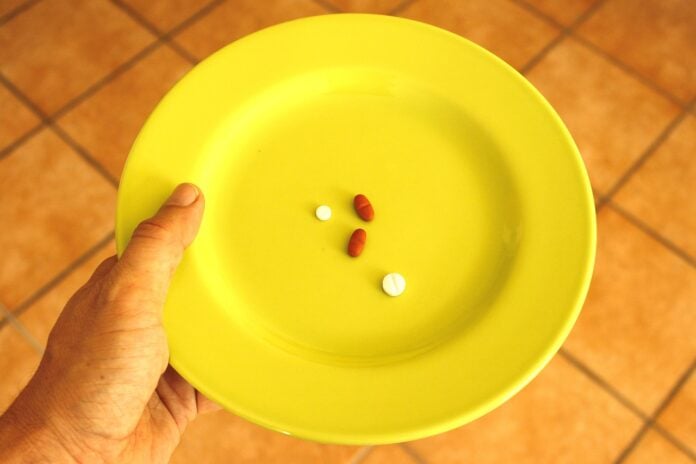Most people who have attempted to build muscle mass have used supplements at one time or another. Unfortunately, many of the supposedly miraculous all-natural or herbal remedies don’t work, especially for “hard gainers”, who struggle to grow muscle.
We will be revealing three of the most effective muscle-building, all-natural supplements for men and women that have been tested in human clinical trials. All of these supplements are supported by credible, real research studies. We won’t leave you hanging – let’s get started.
The Best Supplements for Building Muscle
Protein Powder for Lean Muscle Gain
Protein is essential for building, maintaining, and replacing tissues throughout your body. Protein is the main nutrient that builds muscle. It’s also important for your immune system, muscles, and organs. Many people, especially those on a plant-based diet struggle to get enough protein to build muscle. Protein powder supplements can be a great help. First,…
Which is better for building muscle:
There isn’t much evidence that whey or other animal-based proteins are more effective than plant protein sources in building muscle. 2021 study showed that both whey protein and soy protein are equally effective in supporting lean muscle growth. Similar improvements in body composition were observed in a 2019 study after 8 weeks of pea (plant-based protein) and whey protein. Pea protein supplementation was found to produce similar muscle gains as whey protein in a 2015 study.
An estimated 68% of people are lactose-intolerant so it is likely that many people won’t be eating dairy-based proteins such as whey. Other animal-based proteins, such as collagen, can also be used for muscle building. However, they aren’t as well studied as whey or certain plant proteins. There have been some studies that show collagen is not as efficient as whey in muscle protein synthesis. Whatever source you choose, protein powders will work for you if you are looking to lose fat and gain muscle.
Protein powder side effects:
Protein powders can be considered dietary supplements. The FDA does not regulate the labeling and safety of protein powders. First, make sure that the protein powder you are using has been routinely tested by a third party for mold, pathogens and heavy metals. You should be able to share COAs with supplement manufacturers.
Research suggests that whey protein may cause gastrointestinal discomfort. There is limited information on side effects of high-protein intake from food and supplements. If you are sensitive or have an allergy to dairy products, don’t use whey proteins.
There are many possible interactions:
- Albendazole (Albenza). If you’re taking this parasite-killing drug, whey protein should be avoided. Supplements can delay or prevent the drug from working properly.
- Alendronate (Fosamax). The drug might be less absorbed if whey protein is used in conjunction with it.
- Some antibiotics. Your absorption might decrease by using whey protein with quinolone and tetracycline antibiotics.
The soils in which plant protein powders are grown absorb small amounts. These levels don’t usually have any adverse effects on human health, but it is a good idea to check with supplement manufacturers and review their heavy metal testing reports.
Creatine Can Increase Strength and Build Lean Muscle
Creatine, an amino acid, is found in your muscles and in the brain. Creatine can be synthesized, but most people consume seafood and red meat to get it. Creatine is also produced by the body’s pancreas, liver, and kidneys. Creatine is a great supplement for building muscle mass and improving athletic performance.
Side effects of creatine:
The Mayo Clinic suggests that creatine is safe if used as directed. Creatine can be taken orally in the right doses for up to five years if it is used at the appropriate dosages. It is important that you choose a product with the best manufacturing practices. Third-party testing can also be used to verify product quality. Creatine can lead to weight gain. It is generally referred to as lean body mass (more muscles).
People with pre-existing kidney problems might find creatine unsafe. One study found that creatine may worsen kidney disease in patients with kidney problems, however, creatine does not appear to have any effect on kidney function in healthy individuals. Caffeine and creatine may interact. The efficacy and potency of creatine could be decreased if you combine caffeine with creatine. The progression of Parkinson’s may also be impacted by creatine containing a higher daily intake of caffeine than 300 mg. More research is required.
Glutamine Can Speed Recovery and Increase Strength Gains
L Glutamine, the most important essential amino acid in the body and one of the “building blocks of protein” is the most common. It is a “conditional” amino acid which means your body can make it but only uses large quantities. Glutamine makes up around 60% of your skeletal muscles. This is why athletes and bodybuilders have used it for years to build and maintain lean body mass.
Glutamine side effects:
Although L-glutamine can be safe, it may cause side effects. If any of these symptoms persist or become severe, consult your doctor immediately.
- Constipation
- Nausea
- Headache
- Abdominal pain
- Cough
- Back, leg, foot, hands or arm pain
Summary
Based on solid evidence, protein powder and creatine are the best options for lean muscle growth. It can be difficult to find a protein powder that suits your needs. We recommend that you stick with products made in the USA, with no added sugar and animal protein such as collagen or whey protein. This is especially important if your goal is to build lean muscle.
Any supplement that you select should be GMP-certified and FDA-approved. Third-party lab testing for heavy metals and food-borne pathogens should also be done. It doesn’t matter what gender you are, consistency is key to building lean muscle. Supplements are only one piece of the puzzle. If you want to lose weight and stay lean, it is important to do resistance training multiple times per week.

